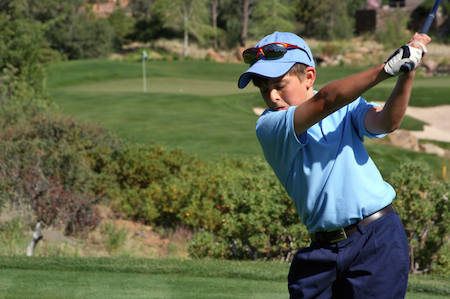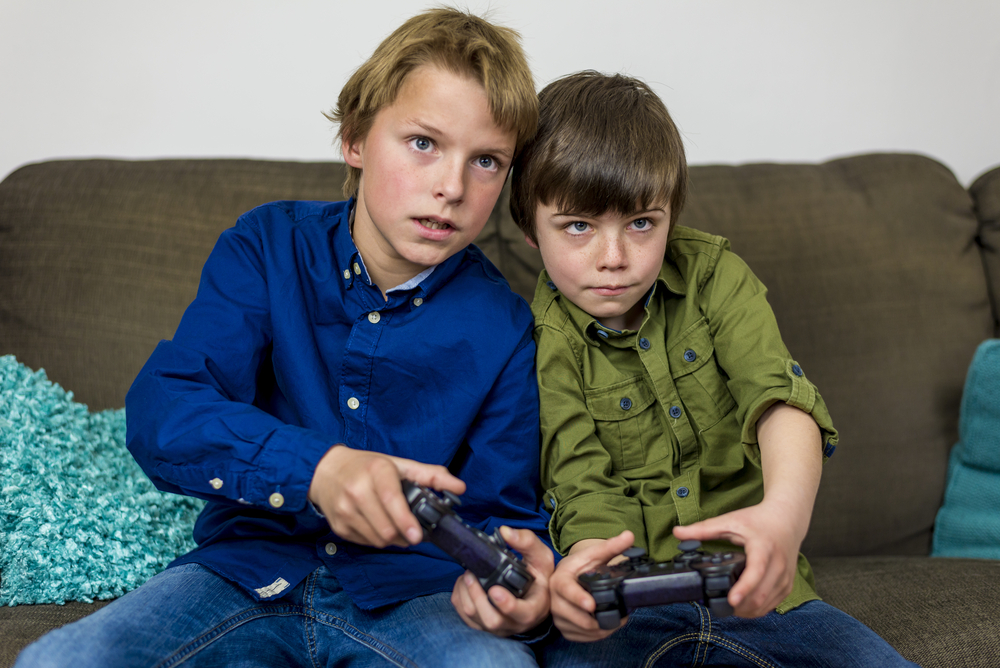Playing Video Games Actually Helps Kids Learn New Sensorimotor Tasks
by Dan Peterson, TeamSnap's Sports Science Expert
Well, there goes that golden piece of parental logic. For years, we’ve been arguing, imploring, and threatening our kids to get off their Xbox, PS4 or even Wiis (are those still around?) and get outside for some fresh air and reality. It isn’t healthy, we argued, to sit in front of that TV and play video games for hours. While we still have the cardiovascular argument in our corner, new research just confirmed that gaming actually improves our kids’ ability to learn new sensorimotor skills.
Playing “first person” games, like Call of Duty or Madden, drops the user into a point of view perspective that simulates the environment as if looking through their own eyes. While playing the game for hours will surely sharpen a child’s ability to shoot enemy zombies (as opposed to friendly zombies) or throw a deep post pattern, there was still some doubt if those skills could improve their ability to master new tasks. Is the brain simply rehearsing a narrow set of repeated, learned movements or can it adapt and transfer to new, similar challenges through neuroplasticity?
"We wanted to understand if chronic video game playing has an effect on sensorimotor control, that is, the coordinated function of vision and hand movement," said University of Toronto graduate student Davood Gozli.
Along with Jay Pratt, professor of psychology, Gozli recruited 36 volunteers, including both gamers and non-gamers. The gamers group included 18 volunteers who had played a first-person video game at least two hours, three times per week for the last six months - truly serious players. A second group of 18 had little to no experience with video games over the last two years (these must be the kids we see playing outside).
All 36 participants were tested on a computerized tracking task. With a mouse cursor, they were asked to track a moving target that would move constantly around the screen in a complicated but repeating pattern. Neither group had an advantage at first as they both struggled.
"This suggests that while chronically playing action video games requires constant motor control, playing these games does not give gamers a reliable initial advantage in new and unfamiliar sensorimotor tasks," said Gozli.
But, as time passed, the gamers’ performance improved significantly faster than the non-gamers. "This is likely due to the gamers' superior ability in learning a novel sensorimotor pattern, that is, their gaming experience enabled them to learn better than the non-gamers,” according to Gozli.
Just to make sure that they were actually learning the pattern and not just innately better at tracking objects, Gozli mixed up the second part of the experiment. He made the moving target be completely random in its movement with no set pattern to discover and repeat.
This time, both groups struggled to improve, showing that the gamers actually used their superior learning skills in the first experiment.
The research has been published in Human Movement Science.
Gozli concluded that the hours of practice within a single game environment produced adaptations in the brain that could then transfer to similar but new motor skills. Several cognitive training systems use this same principle to help athletes improve their perception and reaction times when viewing a game environment. Imagine a baseball batter seeing hundreds of virtual pitches, then going into a live batting practice or a quarterback seeing dozens of different defensive formations flash on a screen before going out on the field for a game.
So, giving them one more hour on the Xbox before you kick them outside may not be that bad after all.
NEW! Free Sports Organization Resources
All of TeamSnap's ebooks, articles, and stories in one place. Access Now
Similar Articles:

For Golfers, Jazz Improves Scores
For millions of people around the world, the search has…
Read More

Rewiring Peyton Manning’s Brain
By Dan Peterson, TeamSnap’s Sports Science Expert…
Read More

Why 3D Video Games Might Actually Be Good For Young Brains
By Dan Peterson, TeamSnap's Sports Science Expert …
Read More
